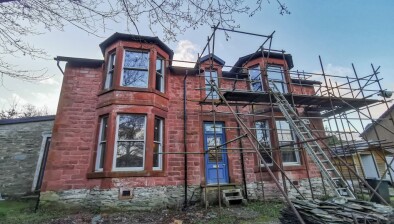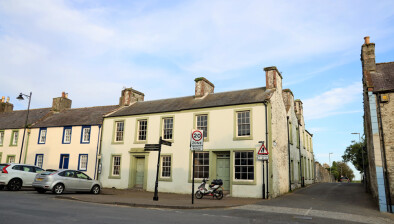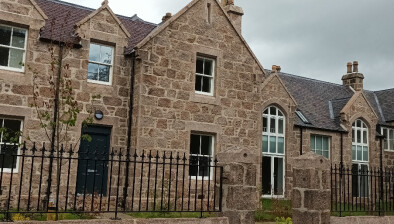Social banks and funded feasibility studies could hold key to unlocking Scotland’s empty homes
 The Scottish Empty Homes Partnership (SEHP) has proposed the creation of a community grants programme to help bring Scotland’s thousands of private empty homes back into use.
The Scottish Empty Homes Partnership (SEHP) has proposed the creation of a community grants programme to help bring Scotland’s thousands of private empty homes back into use.
The partnership, which is funded by the Scottish Government and hosted by Shelter Scotland, says that an Empty Homes Community Grants Programme would encourage social enterprises, charities and other local organisations to pursue empty homes work while providing local housing and an income stream for local groups.
A number of social banks – banks that put social good and financial sustainability at the heart of their business activities - have already agreed to look at introducing complementary empty homes loan fund products should the Scottish Government introduce a community grants programme.
In its ‘Empty Homes Financial Incentives Recommendations’ report, the SEHP also proposes the creation of a rolling 3-year empty homes feasibility fund to enable owners and organisations to develop deliverable project plans (especially for multi-unit developments). This would take some of the risk out of empty homes work and make owners and developers more confident of success.
The SEHP also proposes a 2nd round of Town Centre Empty Homes Funding to complement the empty homes element in the upcoming Rural Housing Fund. The SEHP also proposes an Empty Homes Regeneration Loan Fund aimed at owner occupiers, developers and others to bring long-term empty homes back into use at market rates.
Kristen Hubert, Scottish Empty Homes Partnership national manager, said: “So far we have helped local authorities and owners bring back into use more than 1200 private empty homes worth an estimated £200 million. This report identifies funding gaps and proposes creative ways forward for bringing more money in to start tackling the rest of the 27,000 long-term empty homes in Scotland that are worth around £4.5 billion.
“The idea of an Empty Homes Community Grant Fund is exciting and has real prospects for success. A similar scheme has been successful in England and it’s really positive that we’ve already had some social banks express interest in creating loan products for this proposal.”
Kristen Hubert added: “We have also proposed a feasibility fund so that owners, local authorities and developers can take some of the risk out of empty homes work by conducting a feasibility study. This is designed to encourage more owners of long-term private empty property to take that first step to renovating or converting it for residential use.”
Dave Matkin, director, commercial banking at Unity Trust Bank, said: “We fully support Shelter Scotland’s call for new funding streams and grant programmes to bring empty homes back into good use in Scotland. By making grant and loan finance available for community-led organisations to take action on empty homes, communities will benefit from regeneration and a range of social impacts. We supported a similar programme in England with over £3.1m of loan funding, and research, sponsored by Unity, has already evidenced the potential for the success of this idea.
“In addition to the other proposed funding ideas, a community grants programme would help stimulate action led by social enterprises, charities and community organisations, all of which can play a crucial role in providing local solutions to the issue of empty homes.”
Niall Alexander, social enterprise business development manager at Airdrie Savings Bank, added: “There is a shortage of affordable housing in Scotland and these proposals, along with much needed social housing new build proposals, could address some of that shortage by bringing houses back into use and strengthening families and communities. Airdrie Savings Bank, rooted in the firmament of community and cooperative spirit, are pleased to be associated with this initiative from Shelter Scotland.”








